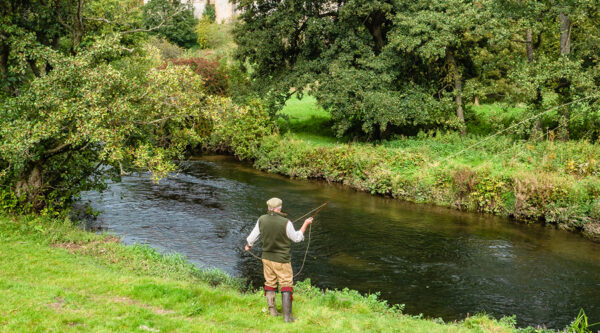
Farming partnerships – understanding your entitlement upon retirement from a partnership
8 July 2024

The Court of Appeal recently handed down a judgment in the case of Procter v Procter [2024] EWCA Civ 324. This judgment has provided some clarity as to the financial implications for a partnership should one of the members resign or retire.
Background to Procter v Procter
Mr and Mrs Procter were the owners of a farming business which included farm land and buildings, and a golf course.
Mr and Mrs Procter entered into a partnership with their three children, James, Philip and Suzanne. Over the years, the membership and profit and loss sharing proportions of the partnership changed, until the position was reached whereby the father and three children each held a 25% share.
The dispute arose after Suzanne gave notice of her resignation from the partnership, despite the partnership deed not including provision to allow partners to resign via notice. Importantly, the resignation included no details as to the financial terms of Suzanne’s retirement, including whether or not Suzanne’s share would be bought out.
The parents passed away in 2013 and 2014, which led to Suzanne bringing a claim against James and Philip. Suzanne claimed that she was entitled to the value of her share in the partnership, the assets and income on the date that she resigned in 2010. However, Philip and James responded that due to the notice of resignation not containing any details as to the financial arrangements, Suzanne was not entitled to payment upon resignation as she had given up her share in the partnership.
Decision of the Court of Appeal
As provided by the Partnership Act 1890, individual partners cannot retire or resign from the partnership without dissolving it, unless otherwise stated in the partnership agreement. The Procter judgment confirmed this, explaining that, every time a member of the partnership joins or leaves, the partnership is technically dissolved. This is because the parties to the original contractual partnership have changed.
The judgment set out that an agreement to retire or resign from a partnership does not result in an assumption that the outgoing member is giving up their interest for nothing. The steps the court took in reaching the judgment in Procter are as follows:
- When determining financial entitlement the first port of call are the terms of the original deed of partnership
- If there is not an existing partnership agreement or the partnership agreement does not include any details as to the financial arrangements, the court will consider the notice of resignation or retirement or any ad hoc agreements between the parties.
If all documents between the parties are silent on the financial arrangements following the exit of a member, the Court of Appeal held in Procter that they are treated as though they have retained their share in the assets of the partnership at the date of the retirement or resignation.
The financial entitlement will be equivalent to what the member would have received had the partnership been wound up on the date of the individual’s resignation or retirement.
The individual facts and scenarios are key in the court’s consideration of entitlement. This was a key consideration for the court.
In terms of calculating the value of the exiting members’ share in the partnership, the court has explained that the value is based on the market value of the partnership assets at the time of the resignation or retirement – not the value entered in the accounts.
In Procter v Procter, the Court of Appeal held that Suzanne was also entitled to interest of 5% on the value of her share of the partnership assets between the date of her retirement to the date of the judgment. The Court of Appeal considered this to be a fair additional payment to compensate for the fact that the remaining members of the partnership took over and used Suzanne’s partnership property without any payment being made to her.
Practical considerations
Careful drafting: This case highlights the importance of including provisions relating to the arrangements following the departure of a member. If this drafting is not included, there is a risk of potential litigation. The following elements in particular should be considered in a partnership agreement:
- Under what circumstances a member can retire or resign
- How the retirement or resignation will work, whether written notice is sufficient and how much notice
- How the entitlement following resignation or retirement works – whether the members entitled to a buy-out, when and in what circumstances
- Whether more senior members of the partnership have the power to expel other members
- How the death of a member with be treated – whether the members’ surviving spouse inherit their share
- How the value of the assets in the partnership will be evaluated
- If a buyout provision is to be included upon retirement or resignation, how will this be funded and what is the time period attached?
Professional advice: The Court of Appeal highlighted the importance of the individual facts of each partnership. Therefore, seeking professional advice is key to ensure the bespoke drafting required for your partnership agreement is achieved.
It is important for those involved in family partnerships to treat the partnership as a commercial negotiation and agreement. Taking legal advice to ensure all parties are protected is highly recommended.










